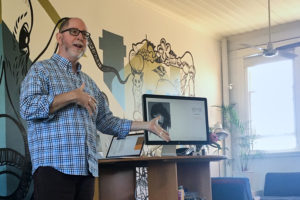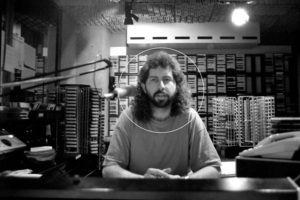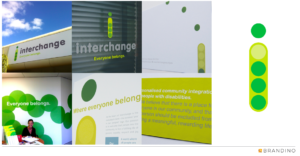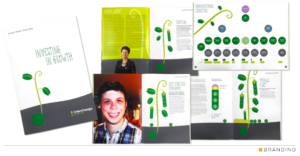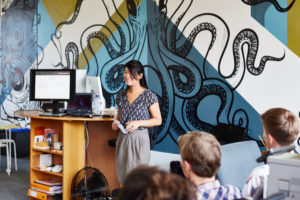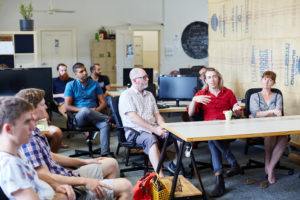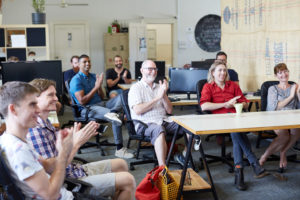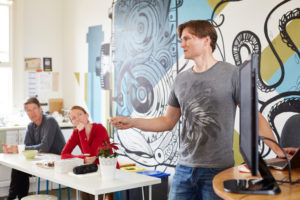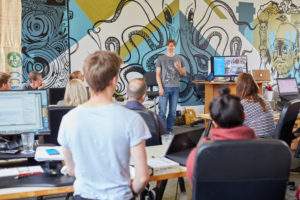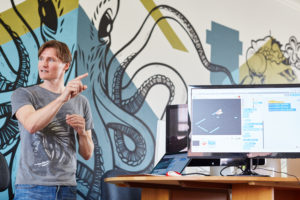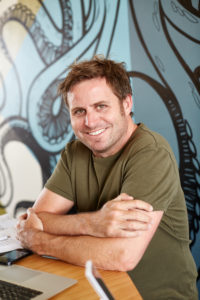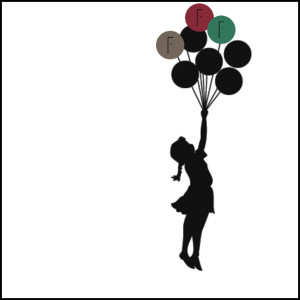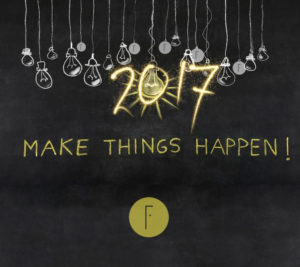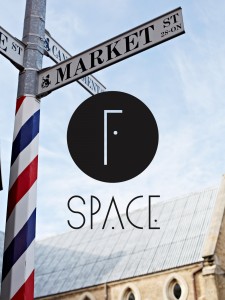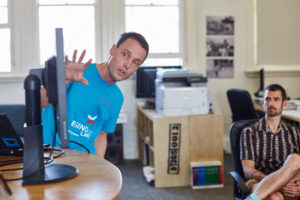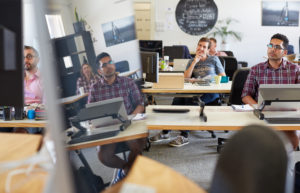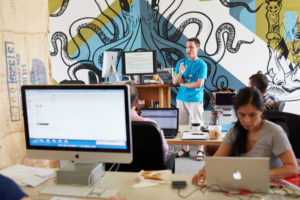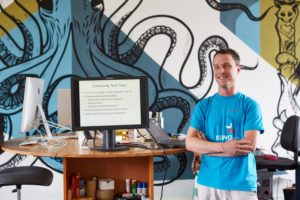fSpace Talks – Ric Cairns, Brandino
Like many of the best creatives, Ric Cairns’ journey to become a creative director took some unexpected and unorthodox turns.
As a teenager, Ric saw a career as a writer – his true passion – as pie in the sky, so he studied civil engineering at UWA (he followed a high school friend there!). He completed his four-year degree, but his heart wasn’t in engineering, so he took his first sharp turn: via the university radio station into broadcasting.
Radio allowed Ric to combine his love of music with his love of language – he crafted written talk-breaks to make his on-air work as interesting as possible. The approach apparently worked well as he progressed to a regular afternoon session on 96FM (where they obviously rewarded hair growth).
All that creative writing on the run must have whet his appetite, because he started trying his hand at advertising in his spare time. It got serious when he did the industry course for creatives – AWARD School – and took off the WA prize.
This brought a call from the precurser of The Brand Agency, inviting him to give up his radio gig to write for them. In some really awkward timing, the same day he got that offer, the radio ratings were announced, giving his show the biggest audience in Perth. (In true ‘80s style this was referred to as being the ‘King of Radio’…)
Understandably, Ric hung around to enjoy his regal position for a while, but he came to realise there were only so many ways to make the weather sound interesting. So, just the following year, his career went around another hairpin: he left radio to fully immerse himself in advertising as a writer.
In a very memorable first year, Ric won a prize at a Campaign Brief workshop that sent him to Sydney to work and learn at legendary Australian ad agency The Campaign Palace. And in that fateful week, he wrote a risque TV ad for Cleo Magazine’s 50 Most Eligible Bachelors that went on to win Gold at the London International Awards – and be one of the most complained-about commercials in Australian history.
This put Ric quickly on the advertising radar – and on the cover of Campaign Brief magazine…
Three years into his advertising career, Ric became creative director of The Shorter Group, a new agency introducing integrated multidisciplinary creative services. As department head, Ric built a strong team of writers, art directors, graphic designers and 3D designers who all worked together to bring brand strategies to life. It must have been a great pitch, because new business doubled the size of the agency in nine months.
From 2000, Ric also served as president of the Perth Advertising and Design Club, helping promote creativity in advertising and design. He led the creation of two of the club’s most fondly remembered annual award shows.
When the economic party ended, The Shorter Group merged with Perth’s biggest agency Marketforce, where Ric remained creative head on the Shorter’s accounts. He worked on many major projects over almost a decade, including creating a five-year global campaign for Tourism WA.
All those years working with designers eventually saw Ric spending more time on design himself. With a particular passion for identity, he finally stepped out of Marketforce in 2011 to try to broaden the nature of his work. This most recent twist in his story was the beginning of Brandino, his own consultancy that allows him to work directly with clients across all aspects of their brand communications: strategy, identity, design, writing, and increasingly film-making.
Ric is focused on ideas, a passion he has shared through guest lectures at various universities. His design philosophy is about “adding meaning and memorability to what we do”. He looks for visual ideas with potential for diverse applications, to create interesting and engaging brands – his work for Interchange WA is a notable example.
Brandino has consulted across all mediums in most areas of industry. From designing exhibitions, to creating unique business cards or compelling annual reports, to building entirely new brand identities, Ric has done just about everything. His new portfolio site at www.brandino.com.au showcases diverse examples from the last ten years.
Ric concluded his talk by inviting fSpace members to reach out to him, to explore opportunities to collaborate. Working on a wide range of projects, he’s always looking to be inspired by – and learn from – good people.
That way, perhaps he’ll find the next twist or turn on his journey.
